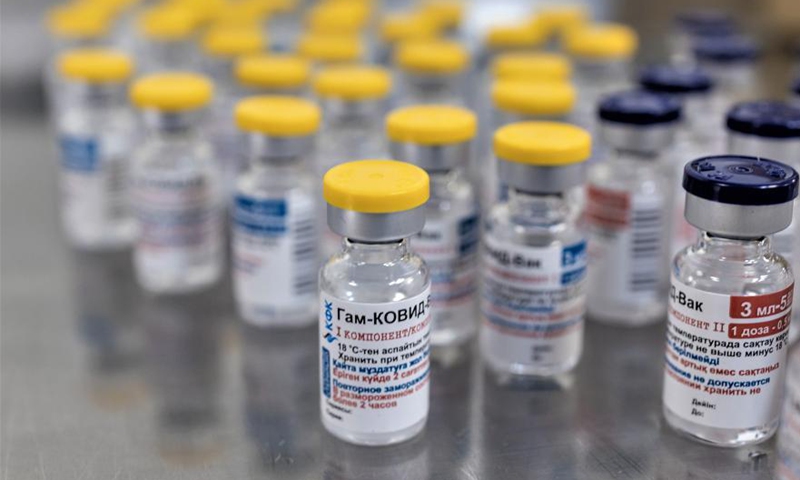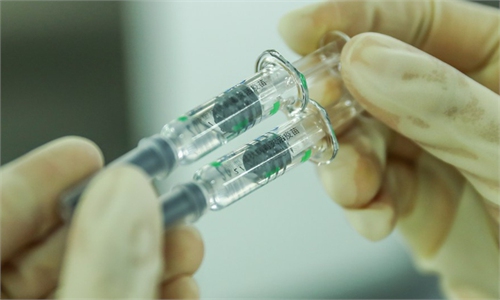Global vaccine drive expands despite teething problems in mass campaigns

Photo taken on Dec. 22, 2020 shows Russia's Sputnik V vaccine at a plant in the Karaganda Region, Kazakhstan. Kazakhstan has started production of Russia's Sputnik V vaccine against the COVID-19.Photo:Xinhua
With the global death toll now past 2 million, many governments are betting on mass vaccination to throttle the pandemic, while tightening lockdown measures at the same time.
Nationwide rollouts from Brazil to Azerbaijan were getting underway on Monday, while Britain and France were widening inoculations to elderly people.
In Russia, the government invited all citizens to sign up for the homegrown Sputnik V jab - but while it was widely available in Moscow, many regions reported receiving only between 5,000 and 15,000 doses in the country of 146 million.
India's campaign was facing teething problems as it emerged that almost a third of the 300,000 people invited for a shot on the opening day didn't turn up.
Authorities worldwide have been mounting public information campaigns to address concerns over vaccine safety, and in the face of powerful online anti-vax movements.
After 33 elderly people who had received a first dose died in Norway, authorities there stressed there was no proven link between the jabs and the deaths. They recommended, however, that doctors consider patients' frailty before immunizing them.
WHO chief Tedros Adhanom Ghebreyesus has warned rich countries against hogging doses while the poorest suffer, blasting vaccine manufacturers for chasing regulatory approvals there rather than seeking global approval.
"I need to be blunt. The world is on the brink of a catastrophic moral failure," Tedros said. "And the price of this failure will be paid with lives and livelihoods in the world's poorest countries."
Israel, praised for one of the world's fastest rollouts, has secured a significant stock of vaccines partly by pledging to quickly share data on its impact with Pfizer, according to an agreement with the drug company.
Despite the mass immunization campaigns now under way, spiraling infection rates have left governments reliant on continuing curbs on people's daily lives.

